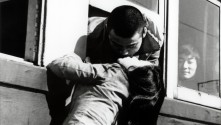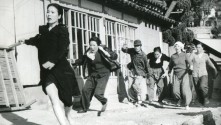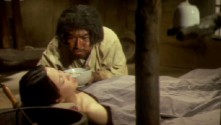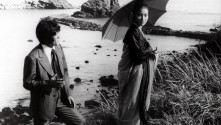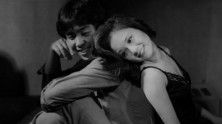
The Pollen of Flowers
(Hwaboon)
With Ha Myung-Joong, Nam Goong-Won, Choi Ji-Hee.
South Korea, 1972, DCP, color, 89 min.
Korean with English subtitles.
DCP source: Korean Film Archive
Ha’s taboo-defying first feature boldly announced his subversive intention with its feverishly stylized and symbolically overripe story of a corrupt bisexual businessman smitten by his young male secretary but also blindly devoted to his pampered mistress, who he keeps in a luxurious suburban hideaway together with her comely younger sister and a strangely inquisitive maid. The businessman’s fateful decision to bring his handsome protégée into his mistress’ nest triggers a frenzied psychosexual cyclone of jealousy and self-immolating desire that threatens to destroy everything in its wake. Ha’s inventive dialogue with Pasolini’s Teorema drew the ire of critics who simplistically accused him of plagiarism while somehow missing Ha’s pointed homage to Kim Ki-Young’s Freudian horror psychodramas (clearly signaled by the figure of the rat-wielding jealous maid, played by venerable character actress Yeo Woon-Kye). While frequently cited as the first Korean film to openly feature a homosexual relationship, The Pollen of Flowers must also be recognized as a lethal attack on the Park Chung-Hee regime, not-so-subtly evoked by the mistress’ mansion, which shares the same “Blue House” moniker as the official South Korean presidential residence. The role of the bewitching young secretary is given haunting authenticity by Ha’s talented brother, Ha Myung-Joong, who also rescued the struggling production by mortgaging his own home. The moody score by psychedelic rock legend Shin Joong-Hyun evokes the fever-dream trance sustained throughout Ha’s dark allegory of abusive power and frustrated desire.



